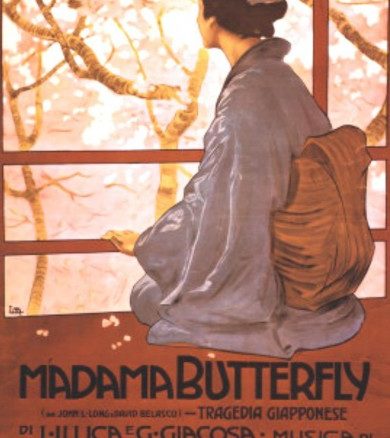
Puccini’s Madama Butterfly is one of opera’s timeless perennials and for good reason. This tale of love, betrayal and clash of cultures wedded to Puccini’s passionate score never fails to provide its audience with a moving experience.
The enthusiastic response to Miami Lyric Opera’s production Saturday night at the South Miami Dade Cultural Arts Center attested to this masterpiece’s continuing immediacy but the performance was stronger on musical values than its theatricality.
As with many of artistic director Raffaele Cardone’s previous offerings, there was considerable vocal talent on display. The simple but effective sets from the Sormani-Stivanello company provided effective backdrops for the story of the Japanese teen heroine who is married by American naval Lieutenant Benjamin Franklin Pinkerton, only to be left with a child when he returns to America.
As Cio-Cio San, Nathalie Avila proved more diva than geisha. While Avila was an impressive Tosca in MLO’s 2016 production of that Puccini opera, here she seemed to stalk the stage with Tosca’s imperious grandeur, which was miles removed from the naiveté and trusting nature of the Asian heroine.
Still what Avila lacked in theatrical credibility, she often made up for in passionate musicality. She was only fitfully audible in the offstage entrance aria but once she hit her stride in the love duet with Pinkerton, Avila produced a warm, ardent stream of lyrical vocalism. “Un bel di” was assayed with deep feeling in gleaming tones. When she told the American consul Sharpless that she would commit suicide if Pinkerton would not return, Avila evoked despair through finely modulated dynamics while projecting a frenzied edge to high notes for expressive effect. She impressively scaled the sadness and resolve of the heroine’s death scene, the voice still strong and beautiful after a long evening.
Emanuel-Cristian Caraman was a vocally fervent but dramatically wooden Pinkerton. The Romanian tenor sang with Italianate tone and his upper range was free of strain. He brought just the right lightness and elegance to “Amore o grillo” and there was pathos as well as robust sonority for “Addio, fiorito asi.”
Dramatically, he might as well have been playing a concert performance. Caraman rarely interacted with his colleagues or displayed much emotion. Neither Pinkerton’s caddishness nor regret were much in evidence. For much of the time Caraman just faced the conductor in the old fashioned “stand and sing” manner.
Lisette Jimenez was an outstanding Suzuki, Cio-Cio San’s maid. Her opulent mezzo voice and dramatic depth vividly conveyed Suzuki’s concern for the heroine’s plight. With Jimenez and Avila’s timbres beautifully melded, the” Flower Duet ” was one of the evening’s high points.
Armando Naranjo’s powerful baritone and dignified presence embodied Sharpless. With a creamy, smooth legato line and a huge voice, Naranjo offered a sympathetic portrayal of the consul. His playfulness with Cio-Cio San’s child conveyed humanity beneath the official’s coolly formal demeanor.
As the marriage broker Goro, Jared Poroune had the agile character tenor for the scheming manipulator. Diego Baner was a commanding Bonze, his condemnation of the heroine for converting to Christianity declaimed in fierce bass tones. Diana Thompson displayed a fine light soprano and dignified presence in Kate Pinkerton’s brief appearance.
The young Ella Arroyo Batista showed real acting rapport with Avila and prodigious theatrical instincts as her son, “Sorrow.” The offstage “Humming Chorus” was beautifully articulated although almost ruined by a ringing cell phone.
Although some of the climaxes verged on the Wagnerian, Jeffrey Eckstein led a strongly dramatic performance. The orchestra’s strings were consistently strong but woodwind and brass intonation was problematic with more than a few fluffs throughout the performance.
The direction of the final scene robbed the drama of its tragic power, with Suzuki and Sharpless recoiling in horror from the lifeless heroine with overdone histrionics right out of a silent film. This added bit of melodrama only detracted from Avila’s lustrous and intense singing of the opera’s final pages.
At the makeshift space of Miami Beach’s Colony Theater, Miami Lyric Opera’s longtime home, the improvisatory nature of the company’s productions offered a certain charm. Now that Cardone has expanded MLO’s performances to the excellent South Dade venue with its sizable stage, full lighting facilities and real orchestra pit, the company needs to upgrade its production values. Stagings need not be more elaborate or expensive but the operas need to be presented in a more strongly conceived, theatrically coherent manner.
Miami Lyric Opera is filling an important void at the south end of Miami-Dade County, presenting a viable alternative to Florida Grand Opera. In fifteen years, Cardone’s company has come a long way. With a little more care and attention to the theatrical element, it can make even greater artistic strides.
Miami Lyric Opera repeats Madama Butterfly 4 p.m. Sunday at the South Miami Dade Cultural Arts Center, 10950 SW 211 Street in Cutler Bay. smdac.org
Posted in Performances
Leave a Comment

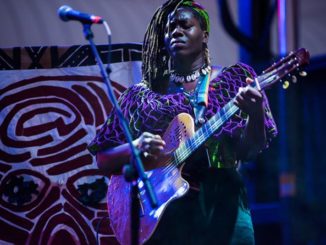

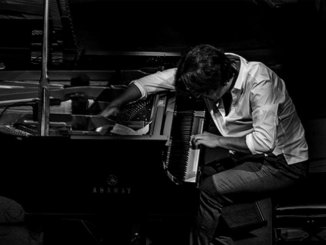
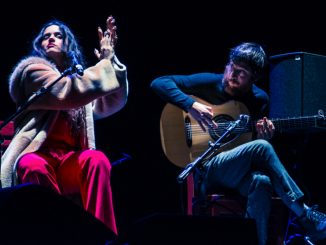

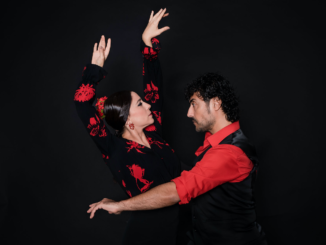
Be the first to comment